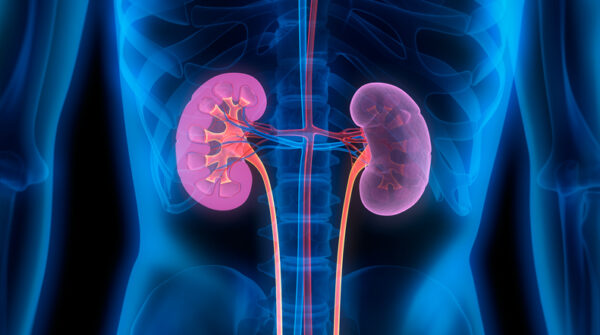

With an estimated 37 million Americans affected by chronic kidney disease, Medicare has launched the Comprehensive Kidney Care Contracting (CKCC) model, spotlighting the importance of proactive, coordinated kidney care.
Nephrologists are at the center of this new model, and we need to work together to do more than repair a broken kidney care delivery system. We must also advocate for an integrated ecosystem, the byproduct of which will be an engaged, motivated and empowered patient population.
CKCC encourages nephrologists to delay the progression of kidney disease to kidney failure. It incentivizes a shift towards home-based renal replacement therapies, pre-emptive transplantations and starting dialysis in an outpatient setting. If providers can team up to proactively manage renal therapies as well as patient comorbidities, an integrated care delivery ecosystem will emerge.
In developing this model, CMS analyzed comorbidities and concluded that all the disease components are modifiable. Therefore, it’s critical for nephrology practices to start incorporating this patient-centric approach and consider more than just immediate kidney concerns.
To be effective, we need to communicate and coordinate care with the entire team involved in a patient’s care. Getting comorbidities under control has a significant impact not only on a patient’s overall health but also in delaying the progression of kidney disease. While nephrology practices will not move completely away from fee-for-service for the foreseeable future, if we can start gradually incorporating more value versus volume-based initiatives, it’s a win-win.
The key considerations for CKCC to succeed include:
- Upstream intervention. By managing potential risks earlier and more proactively, we can help prevent a lot of the health issues and unnecessary complications that emerge further down the line for patients with CKD and end-stage kidney disease.
- Access to real-time data and analytics. If providers have the ability to access real-time data, we can see critical warning signs, whether it’s an irregular heartbeat, fluid retention or a myriad of other symptoms. Seeing these as they happen can significantly impact the future well-being and treatment of a patient.
- Multi-dimensional practice resources. From a nephrology practice point of view, we often don’t have access to the necessary resources to succeed and move beyond just fee-for-service. It can be helpful to partner with companies that understand the renal space, and which can offer a interdisciplinary clinical care team that serves as an extension of the nephrologist’s office. It’s also important to partner with companies that can efficiently streamline administrative processes, provide management expertise and offer unique technology resources to help ensure success within the new model.
- Integrated care ecosystem. If nephrologists want to win the war and not just the battle, we need to communicate consistently throughout the entire care continuum. PCPs play a crucial role in this integrated care ecosystem since they are often the gatekeepers to our patients. We must also use all the resources available to us, including but not limited to discharge planners, nurse practitioners, physician assistants and dietitians so we can facilitate the right care at the right time to prevent patients from ending up back in the hospital. Working alongside PCPs and using these dedicated care navigation resources is the only way we can dismantle the fragmented kidney care system.
While these considerations will help us succeed with CKCC, we need to be thinking even further outside the healthcare delivery box.
Transforming kidney care in 2022 and beyond requires us to:
- Go even further upstream to prevent and delay kidney disease. Ideally, I would like to see us start identifying potential adverse events sooner in stage 3.
- Invest in awareness. By investing in awareness across the healthcare ecosystem, we can ensure earlier referrals and specialist intervention. Another important component is educating the public. About 35 to 40% of patients haven’t had any nephrology care prior to starting dialysis. By increasing awareness around the importance of kidney health, we can try to prevent hospitalizations and disease progression.
- Incentivize health systems. When people are admitted to the ER, how do we coordinate with that system to get a patient into an acute care clinic? If a patient is being discharged, how do we coordinate with a skilled nursing facility to ensure proper recovery? So many touchpoints in the care continuum are siloed, and as a result, the patient’s recovery suffers.
- Bolster remote monitoring. If patients’ vitals can be monitored continuously outside of the doctor’s office, it can give the physician a more complete picture of an individual’s health, as opposed to getting one reading while they’re in the doctor’s office.
- Move more care into the home, where it is more accessible. The majority of patients can access healthcare through the click of an app these days. So the healthcare system should be willing to provide care where the patient is, such as home dialysis. Why should someone with CKD have to arrange transportation services with an outside company just to be able to get to their weekly dialysis appointment across town? Roadblocks such as these prevent patients from getting the care they need and deserve.
The CKCC model is a great step toward delivering the right care at the right time and place for patients. As an industry, we must work together to ensure this model succeeds and we need to continue to overhaul the infrastructure to transform kidney care.
The statements contained in this document are solely those of the authors and do not necessarily reflect the views or policies of CMS. The authors assume responsibility for the accuracy and completeness of the information contained in this document.
Photo: peterschreiber.media, Getty Images


















